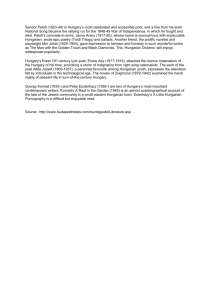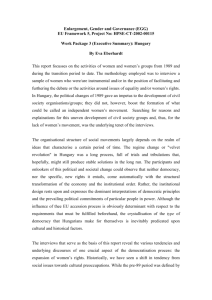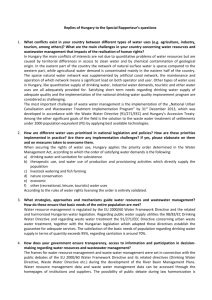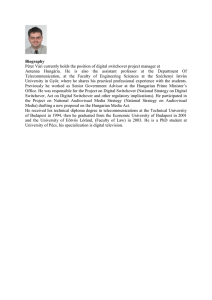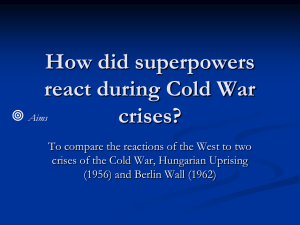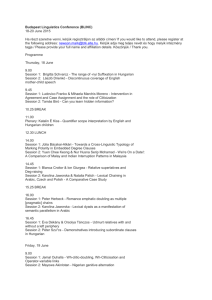DOC - Europa
advertisement
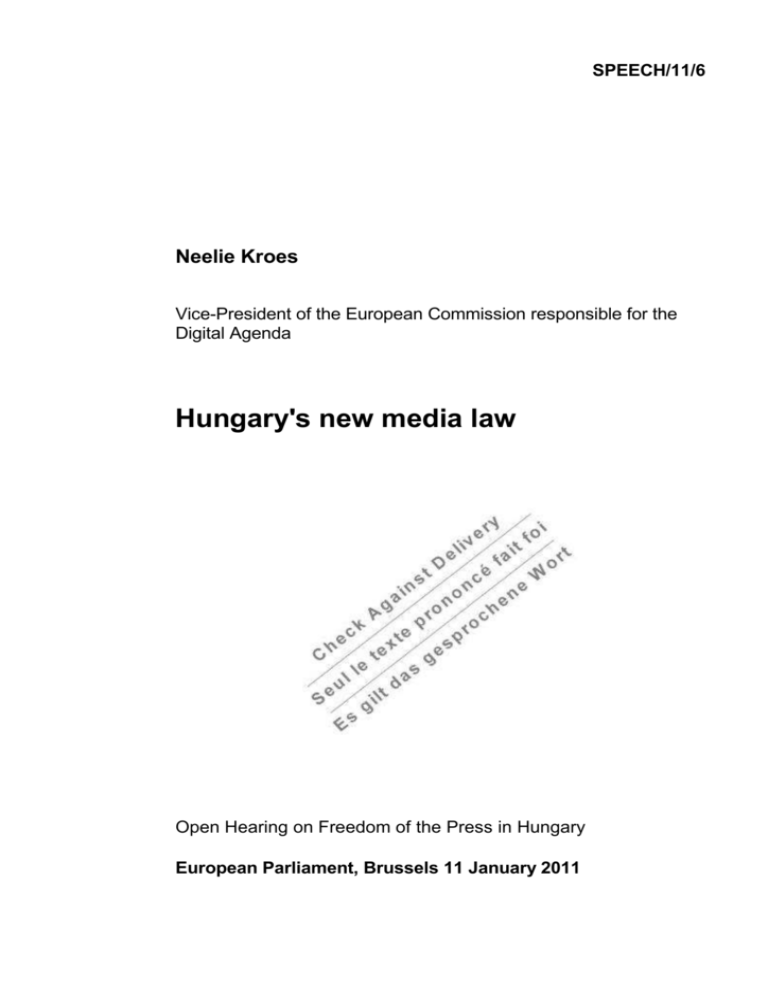
SPEECH/11/6 Neelie Kroes Vice-President of the European Commission responsible for the Digital Agenda Hungary's new media law Open Hearing on Freedom of the Press in Hungary European Parliament, Brussels 11 January 2011 As I wrote to the Hungarian authorities in my letter of 23 December, the recently adopted Hungarian Media Act raises specific concerns regarding its compliance with the EU Audiovisual and Media Services (AVMS) Directive and, more generally, regarding the respect for the fundamental media freedoms such as freedom of expression and media pluralism. Since then, the Commission has been active. I went to Budapest already last Thursday to discuss with the competent minister. The Commission President raised the Media law with Prime Minister Orban the following day. A large number of commentators have alleged that the Hungarian Media Law risks jeopardizing fundamental rights in a number of ways: - by requiring registration of all media, including online media such as forums, blogs and so on; - by requiring all media to engage in balanced coverage of national and European events; - by making the Media Authority subject to political control through the appointment process. The Media Law seems to raise a problem under the AVMS Directive because its provisions appear to apply also to media firms established in other Member States, which would be contrary to the “country of origin” principle. The Audiovisual Media Services Directive establishes a single market for broadcasters based on the country of origin principle. According to this principle media service providers are in principle subject to the regulations in their country of origin only. The Directive sets very precise conditions for derogations from this principle. Moreover, the provision of the law on the need to ensure balanced information would at first sight appear to be quite wide as it extends from the area of broadcasting, where such rules are quite common, to on-demand audiovisual media services, such as even a simple video blogger. More generally, the proportionality of a requirement that all on-line audiovisual media need to be registered needs to be examined. We are also looking at the difficult issue of criteria for media authority independence. But you are well aware that, beside these specific questions concerning the AVMS Directive, the new Media Law raises broader political questions concerning freedom of expression. Freedom of expression constitutes one of the essential foundations of our democratic societies, recognised in the European Treaties and in the EU Charter of fundamental rights. I am fully confident that Hungary, being a democratic country, will take all the necessary steps to ensure that the new Media Law is implemented in full respect of the European values on media freedom and relevant EU legislation. The Hungarian Prime Minister equally made clear that adjustments would be made, should the Commission, after a legal assessment, find that this is not the case for all aspects of the law. We are looking now very carefully at the provisions of the Hungarian Media Law on the basis of the text that has been published by the Hungarian government. As soon as we receive the official notification of the law, which should happen this week, we are going to make our legal assessment of the Law, in full objectivity. 2
